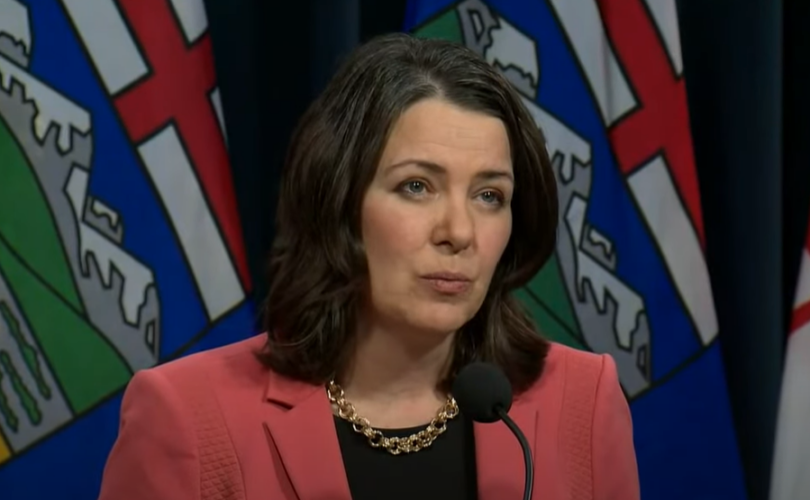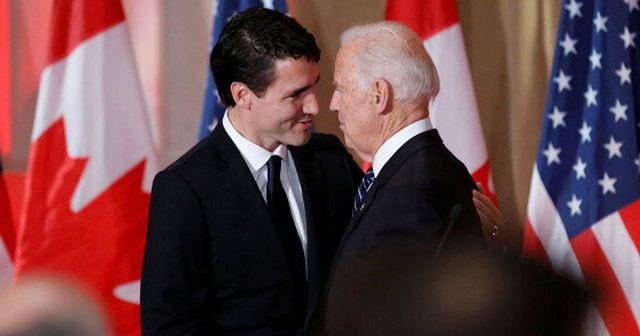Alberta
Province twinning David Thompson Highway (#11) from Sylvan Lake to Rocky Mountain House

From the Province of AlbertaImproving David Thompson Highway and creating jobsThe Government of Alberta will twin a 66-kilometre stretch of the David Thompson Highway between Sylvan Lake and Rocky Mountain House.This $120-million project is part of Alberta’s Recovery Plan and will create about 582 jobs, while upgrading the highway and improving traffic flow along this important recreation corridor.
The David Thompson Highway project is part of the more than $10 billion infrastructure spending announced as part of Alberta’s Recovery Plan. This spending includes: $6.9 billion Budget 2020 capital spending, $980 million accelerated for Capital Maintenance and Renewal, $200 million for Strategic Transportation Infrastructure Program and water infrastructure projects, $600 million in strategic infrastructure projects, $500 million in municipal infrastructure and $1.5 billion for Keystone XL.
Alberta’s government is helping create more than 50,000 good jobs for Albertans by building schools, roads and other core infrastructure that benefits Albertans and communities. It will further diversify our economy by helping sectors grow and succeed and return investment to our province by ensuring we have the most competitive tax environment in Canada Quick facts
|
Alberta
Alberta government should eliminate corporate welfare to generate benefits for Albertans

From the Fraser Institute
By Spencer Gudewill and Tegan Hill
Last November, Premier Danielle Smith announced that her government will give up to $1.8 billion in subsidies to Dow Chemicals, which plans to expand a petrochemical project northeast of Edmonton. In other words, $1.8 billion in corporate welfare.
And this is just one example of corporate welfare paid for by Albertans.
According to a recent study published by the Fraser Institute, from 2007 to 2021, the latest year of available data, the Alberta government spent $31.0 billion (inflation-adjusted) on subsidies (a.k.a. corporate welfare) to select firms and businesses, purportedly to help Albertans. And this number excludes other forms of government handouts such as loan guarantees, direct investment and regulatory or tax privileges for particular firms and industries. So the total cost of corporate welfare in Alberta is likely much higher.
Why should Albertans care?
First off, there’s little evidence that corporate welfare generates widespread economic growth or jobs. In fact, evidence suggests the contrary—that subsidies result in a net loss to the economy by shifting resources to less productive sectors or locations (what economists call the “substitution effect”) and/or by keeping businesses alive that are otherwise economically unviable (i.e. “zombie companies”). This misallocation of resources leads to a less efficient, less productive and less prosperous Alberta.
And there are other costs to corporate welfare.
For example, between 2007 and 2019 (the latest year of pre-COVID data), every year on average the Alberta government spent 35 cents (out of every dollar of business income tax revenue it collected) on corporate welfare. Given that workers bear the burden of more than half of any business income tax indirectly through lower wages, if the government reduced business income taxes rather than spend money on corporate welfare, workers could benefit.
Moreover, Premier Smith failed in last month’s provincial budget to provide promised personal income tax relief and create a lower tax bracket for incomes below $60,000 to provide $760 in annual savings for Albertans (on average). But in 2019, after adjusting for inflation, the Alberta government spent $2.4 billion on corporate welfare—equivalent to $1,034 per tax filer. Clearly, instead of subsidizing select businesses, the Smith government could have kept its promise to lower personal income taxes.
Finally, there’s the Heritage Fund, which the Alberta government created almost 50 years ago to save a share of the province’s resource wealth for the future.
In her 2024 budget, Premier Smith earmarked $2.0 billion for the Heritage Fund this fiscal year—almost the exact amount spent on corporate welfare each year (on average) between 2007 and 2019. Put another way, the Alberta government could save twice as much in the Heritage Fund in 2024/25 if it ended corporate welfare, which would help Premier Smith keep her promise to build up the Heritage Fund to between $250 billion and $400 billion by 2050.
By eliminating corporate welfare, the Smith government can create fiscal room to reduce personal and business income taxes, or save more in the Heritage Fund. Any of these options will benefit Albertans far more than wasteful billion-dollar subsidies to favoured firms.
Authors:
Alberta
Official statement from Premier Danielle Smith and Energy Minister Brian Jean on the start-up of the Trans Mountain Pipeline

-

 Addictions2 days ago
Addictions2 days agoCity of Toronto asks Trudeau gov’t to decriminalize hard drugs despite policy’s failure in BC
-

 Automotive2 days ago
Automotive2 days agoVehicle monitoring software could soon use ‘kill switch’ under the guise of ‘safety’
-

 Business2 days ago
Business2 days agoWhen politicians gamble, taxpayers lose
-

 Bruce Dowbiggin2 days ago
Bruce Dowbiggin2 days agoIt Gets Late Early These Days: Time To Bounce Biden & Trudeau?
-

 National2 days ago
National2 days agoBritish Columbia quickly shoots down bill to ban men from competing in women’s sports
-

 Economy1 day ago
Economy1 day agoOttawa’s homebuilding plans might discourage much-needed business investment
-

 Alberta1 day ago
Alberta1 day agoAlberta government should eliminate corporate welfare to generate benefits for Albertans
-

 Opinion1 day ago
Opinion1 day agoClimate Murder? Media Picks Up Novel Legal Theory Suggesting Big Oil Is Homicidal








